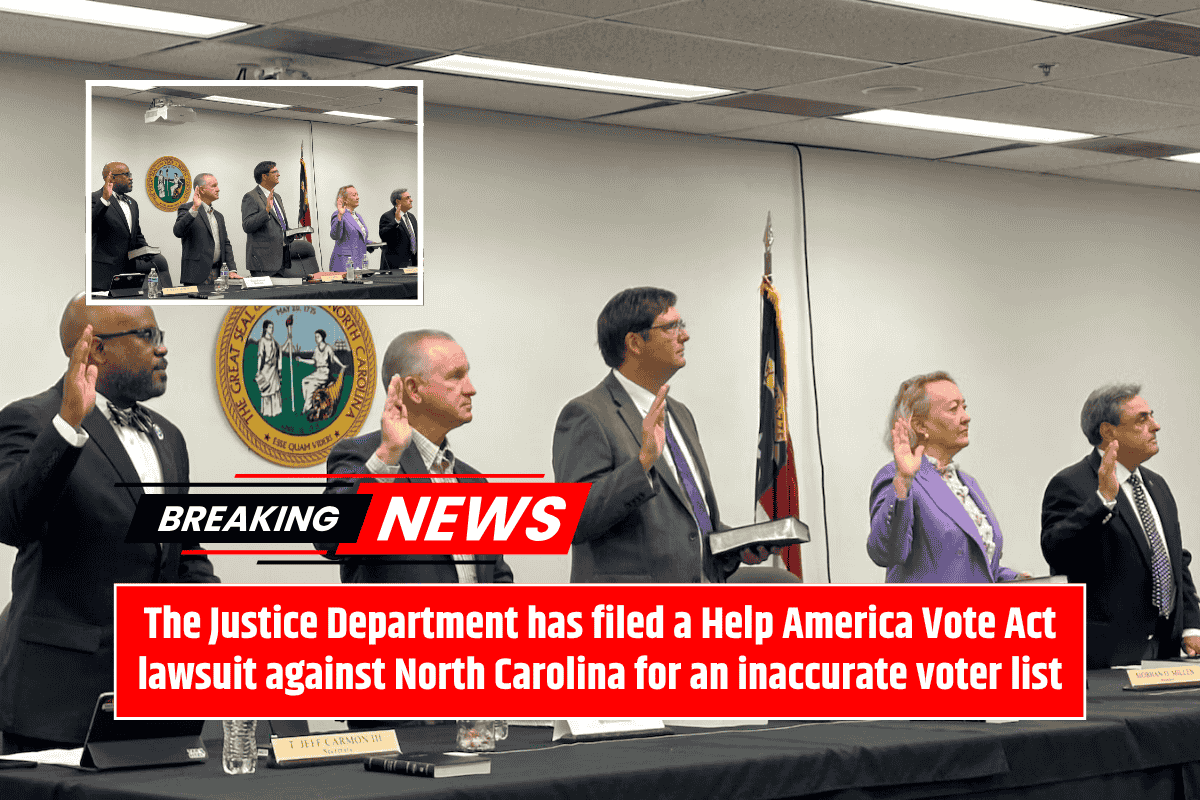The U.S. Department of Justice has filed a lawsuit against the State of North Carolina and the North Carolina State Board of Elections for failing to maintain accurate voter registration records. This action, announced today, accuses the state of violating the Help America Vote Act (HAVA), a federal law that aims to improve the fairness and reliability of elections in the United States.
What Is the Case About?
According to the lawsuit, North Carolina used a state voter registration form that did not require voters to submit important identification details, such as a driver’s license number or the last four digits of their Social Security number. This step is legally required under HAVA to help confirm the identity of voters before they are added to official registration rolls.
As a result, many people were added to the voter list without proper identification, and those records have still not been corrected. This, the Justice Department says, increases the risk of errors and fraud in future elections.
Why Accurate Voter Lists Matter
Accurate voter registration is key to making sure elections are fair and that every legitimate vote counts. Incomplete or inaccurate records can lead to problems like duplicate voting, wrongful removal of eligible voters, or confusion at polling places.
Assistant Attorney General Harmeet K. Dhillon from the Civil Rights Division stated:
“Accurate voter registration rolls are critical to ensure that elections in North Carolina are conducted fairly, accurately, and without fraud.”
She added that the Justice Department is committed to enforcing laws that protect the voting process, and it will take legal action when states fail to follow federal requirements.
Background on the Federal Executive Order
The lawsuit follows Executive Order 14248, titled “Preserving and Protecting the Integrity of American Elections,” signed by President Donald J. Trump on March 25. This order focuses on making sure elections follow all federal rules that prevent illegal voting, fraud, and other election-related issues.
Under this executive order and existing federal law, the Attorney General, through the Civil Rights Division, is tasked with ensuring the integrity of American elections. That includes making sure states keep their voter registration records accurate and up to date.
About the Civil Rights Division’s Voting Section
The Voting Section of the Civil Rights Division is responsible for enforcing several important laws, including:
- The Voting Rights Act
- The National Voter Registration Act
- The Help America Vote Act (HAVA)
- The Uniformed and Overseas Citizens Absentee Voting Act
These laws protect the rights of voters and help ensure fair access to the ballot.
How to Report Voting Rights Violations
If you believe your voting rights have been violated or want to report problems with the election process, you can file a complaint with the Department of Justice:
Visit: civilrights.justice.gov
Call: 1-800-253-3931
You can also learn more at justice.gov/voting.
This lawsuit highlights the importance of maintaining proper voter records and following federal laws during elections. The Justice Department’s legal action against North Carolina sends a clear message: every step must be taken to protect the election process from fraud and error. With fair voting being the foundation of a strong democracy, ensuring clean and accurate voter rolls is a top priority.
